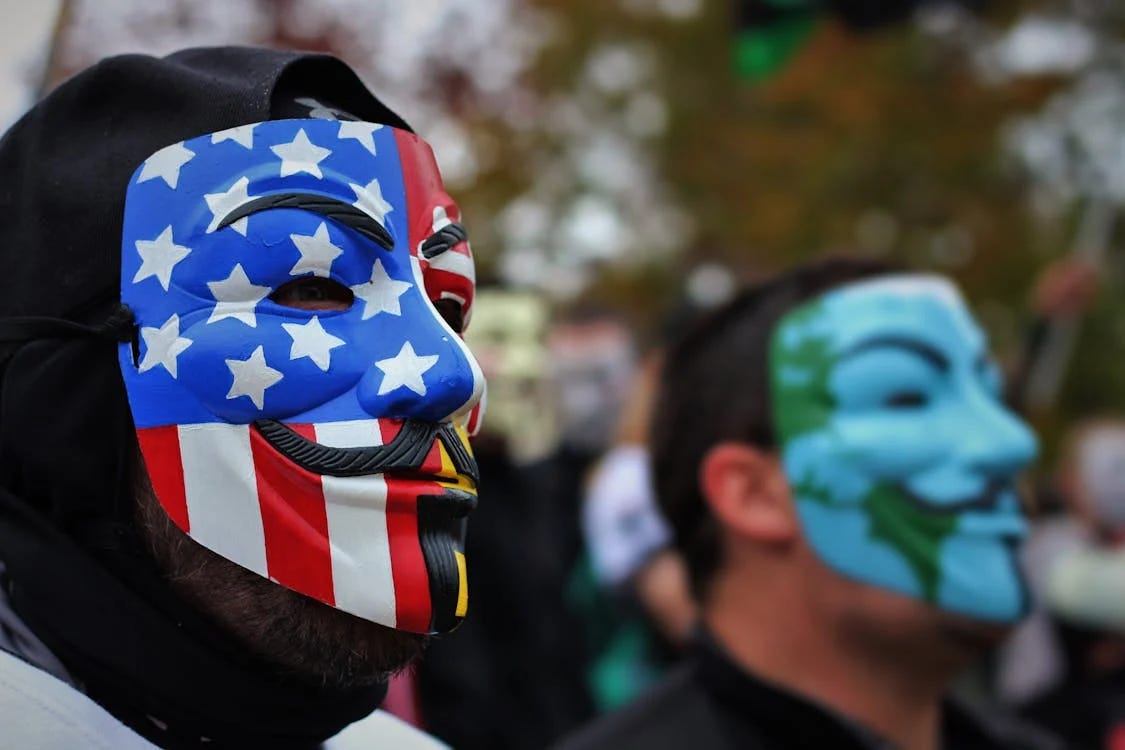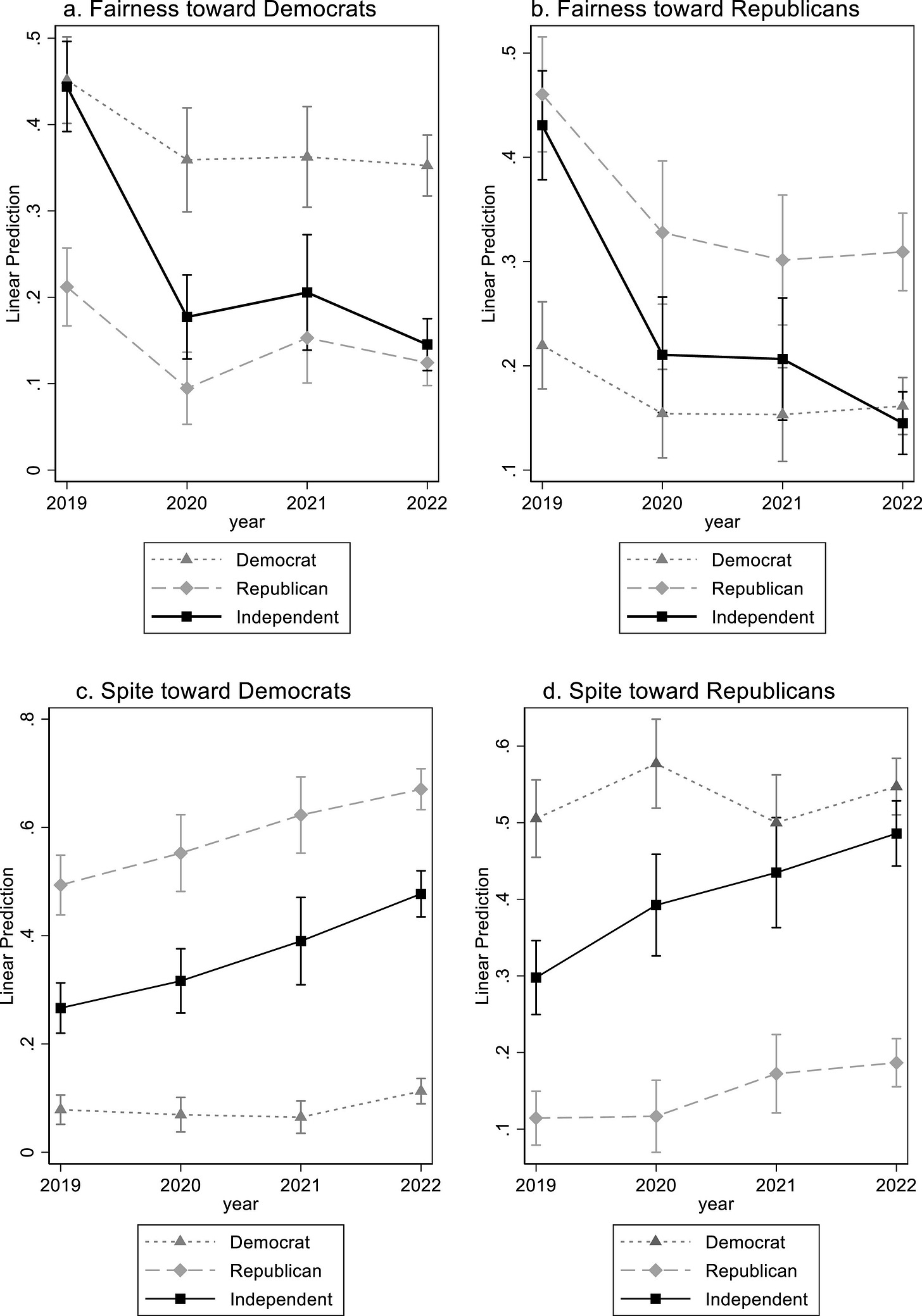12 Things Everyone Should Know About Political Psychology
Both sides have more in common with the other than either would like to admit
This is the latest post in my “12 Things Everyone Should Know” series. You can access the full collection here.
Political psychology isn’t one of the better known areas of psychological science. At least until recently, it’s been a B-list celebrity compared to A-listers like clinical psychology, evolutionary psychology, and personality psychology.
However, with the political turmoil of the last decade, and the increasing volume of extreme voices on both sides of the ideological spectrum, political psychology’s stock is rising fast. For my money, the field has produced some of the most interesting, thought-provoking research to come out of psychology in recent years. In this post, I’d like to tell you about 12 of my favorite examples. Hope you enjoy it!
1. We all know that political polarization is on the rise in many nations: Members of the two main parties hate each other more this week than they did last week, and hated each other more last week than they did last year. A new U.S. study reveals an interesting additional detail: Independents increasingly hate both sides.
2. Prejudice based on political affiliation is now stronger than prejudice based on race, religion, language, or region of origin. Curiously, whereas education is associated with decreased racial prejudice, it’s associated with increased political prejudice - and the stronger people’s partisan leanings, the bigger the effect.




